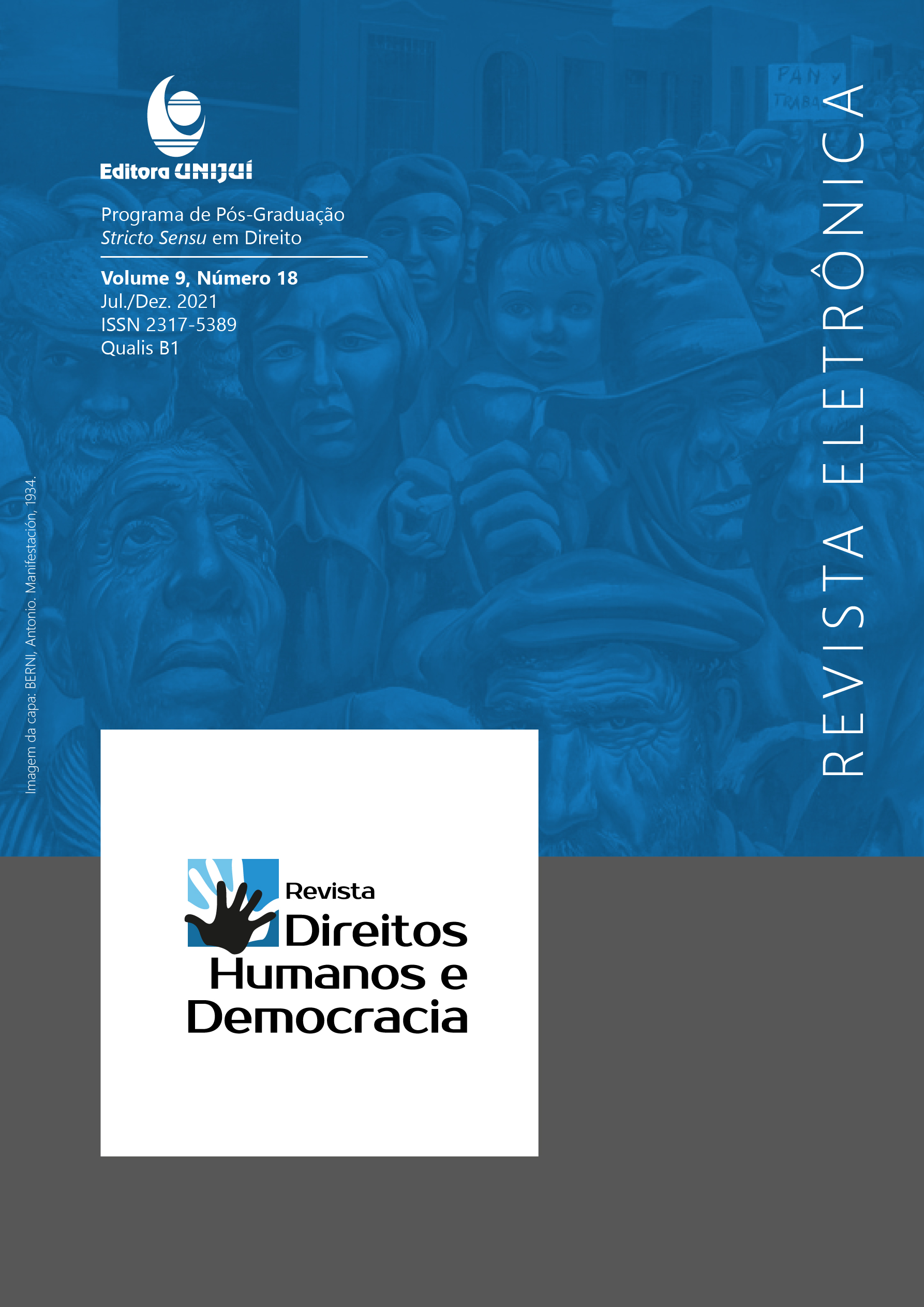REPENSANDO A DEGRADAÇÃO DO REGIME HÍBRIDO NA VENEZUELA DE UMA PERSPECTIVA MINIMALISTA DE DEMOCRACIA
RETHINKING THE DEGRADATION OF THE HYBRID REGIME IN VENEZUELA FROM A MINIMALIST PERSPECTIV OF DEMOCRACY
DOI:
https://doi.org/10.21527/2317-5389.2021.18.12163Keywords:
Regime híbrido; Venezuela; Democracia; Instituições.Abstract
Após a redemocratização que varreu a América Latina nos anos 1980, a literatura em Ciência Política assinalou o surpreendente advento das democracias iliberais – tão bem descritas por Fareed Zakaria em icônico artigo de 1997 – e/ou regimes híbridos, conforme produção científica recente. Tais arranjos políticos pretendem modificar substancialmente as instituições da democracia representativa do tipo liberal, substituindo-as por desenhos consonantes com as concepções de democracia participativa ou radical. A discussão ganhou notável contribuição com a recente publicação do livro “Como morrem as democracias”, de Steven Levitsky e Daniel Ziblatt, que apresentam seu diagnóstico para a erosão gradual das instituições da democracia representativa do tipo liberal ao redor do planeta. O caso mais emblemático de regime híbrido na América Latina, segundo a literatura dominante, é o da Venezuela bolivariana que exibe hoje profunda divisão política e está à beira do colapso econômico. Por meio da revisão da literatura e a partir de uma perspectiva minimalista de democracia, o presente artigo busca repensar as causas que levaram à ascensão e, agora, ao iminente colapso do regime bolivariano que substituiu a oligarquia competitiva representada pelo Pacto de Punto Fijo (1958-1998). As conclusões principais são, dentre outras, a de que a robusta degradação do ambiente político-institucional venezuelano decorreu, no campo político, da miragem do outsider redentor e, na esfera econômica, do cálculo mágico de custo zero.
Downloads
Published
How to Cite
Issue
Section
License
By publishing in the Revista Direitos Humanos e Democracia, authors agree to the following terms:
Articles are licensed under the Creative Commons Atribuição 4.0 Internacional (CC BY 4.0), which allows:
Share — copy and redistribute the material in any medium or format;
Adapt — remix, transform, and build upon the material for any purpose, including commercial use.
These permissions are irrevocable, provided the following terms are respected:
Attribution — authors must be properly credited, with a link to the license and indication of any modifications made;
No additional restrictions — no legal or technological measures may be applied that restrict the use permitted by the license.
Notices:
The license does not apply to elements in the public domain or covered by legal exceptions.
The license does not grant all rights required for specific uses (e.g., image rights, privacy, or moral rights).
The journal is not responsible for opinions expressed in the articles, which remain the sole responsibility of the authors. The Editor, with the support of the Editorial Committee, reserves the right to suggest or request modifications when necessary.
Only original scientific articles presenting research results of interest, not previously published or simultaneously submitted to another journal with the same purpose, will be accepted.
References to trademarks or specific products are intended solely for identification purposes and do not imply any promotional endorsement by the authors or the journal.
License Agreement: Authors retain copyright over their articles and grant the Revista Direitos Humanos e Democracia the right of first publication.













